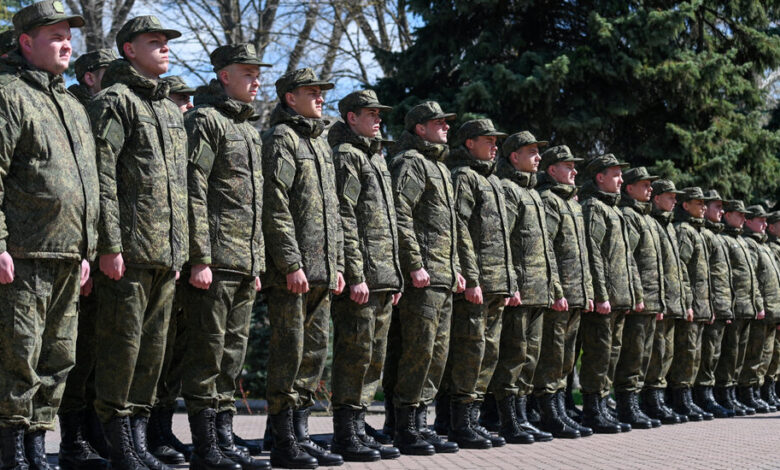In Trump Call, Putin Notches a Diplomatic Win, With an Economic Caveat

Since his invasion in 2022, President Vladimir V. Putin of Russia has wanted to end the war in Ukraine on his terms. And in the complex diplomatic maneuvers of recent weeks, the Russian leader has been able to defend his approach to negotiate a comprehensive peace deal while continuing to wage war in Ukraine, which he believes is going his way.
His hard-line position has withstood pressure from Ukraine, from the European Union and, until recently, from the United States for an immediate cease-fire before starting peace talks. After speaking with Mr. Putin by phone on Monday, President Trump said that he welcomed direct talks between Ukraine and Russia toward a cease-fire and a broader deal to end the war, in effect making a final break with his earlier promise to bring a swift end to the conflict.
But Mr. Putin’s diplomatic victory could undermine his broader economic goals to normalize relations with the United States.
After speaking with Mr. Putin, Mr. Trump emphasized that American economic rapprochement with Russia would come after peace in Ukraine, not before. If Mr. Trump keeps the two issues intertwined, it could confine Russia to an economic purgatory, with little immediate chance of getting relief from Western sanctions or of bringing the foreign investment dangled by Mr. Trump.
“Russia wants to do large scale trade with the United States when this catastrophic ‘bloodbath’ is over, and I agree,” Mr. Trump said in a statement on Monday after the call.
Vice President JD Vance made the same point in even starker terms.
“Look, there are a lot of economic benefits to thawing relations between Russia and the rest of the world, but you’re not going to get those benefits if you keep on killing a lot of innocent people,” he told reporters on Monday on his way to Washington after meeting President Volodymyr Zelensky of Ukraine in Rome the previous day.
In choosing to pursue Ukraine’s capitulation over economic benefits, Mr. Putin is most likely guided by a belief that time is on his side.
The price of oil, the main source of Russia’s budget revenue, has stabilized at around $65 a barrel after plunging in the days after Mr. Trump’s announcement of global tariffs in April. Mr. Trump’s postponement of those tariffs has saved the Kremlin from having to make substantial cuts to its war spending. Although the Russian economy has been slowing this year, it continues to expand at a pace that makes a financial crisis unlikely. The government expects gross domestic output to increase at about 1.5 percent this year.
Mr. Putin has repeatedly indicated that Russia is not afraid of new Western sanctions because the Kremlin has grown adept at adjusting to them. The European Union’s latest batch of sanctions has been brushed off by Russian propagandists as weak, while Mr. Trump indicated that the United States could hold off on new sanctions, citing a chance of progress in the negotiations.
Russia’s latest budget data shows that the country’s strategy of offering ever-higher sign-up bonuses and salaries to recruits is working. Analysts estimate that despite Russia’s very high battlefield casualties, the country is recruiting more soldiers than it loses to death and serious injury.
And on the front line in Ukraine, Russia’s pace of advance has picked up this month after anemic gains earlier this year, suggesting that Mr. Putin’s military could be ramping up for another large-scale summer offensive.






